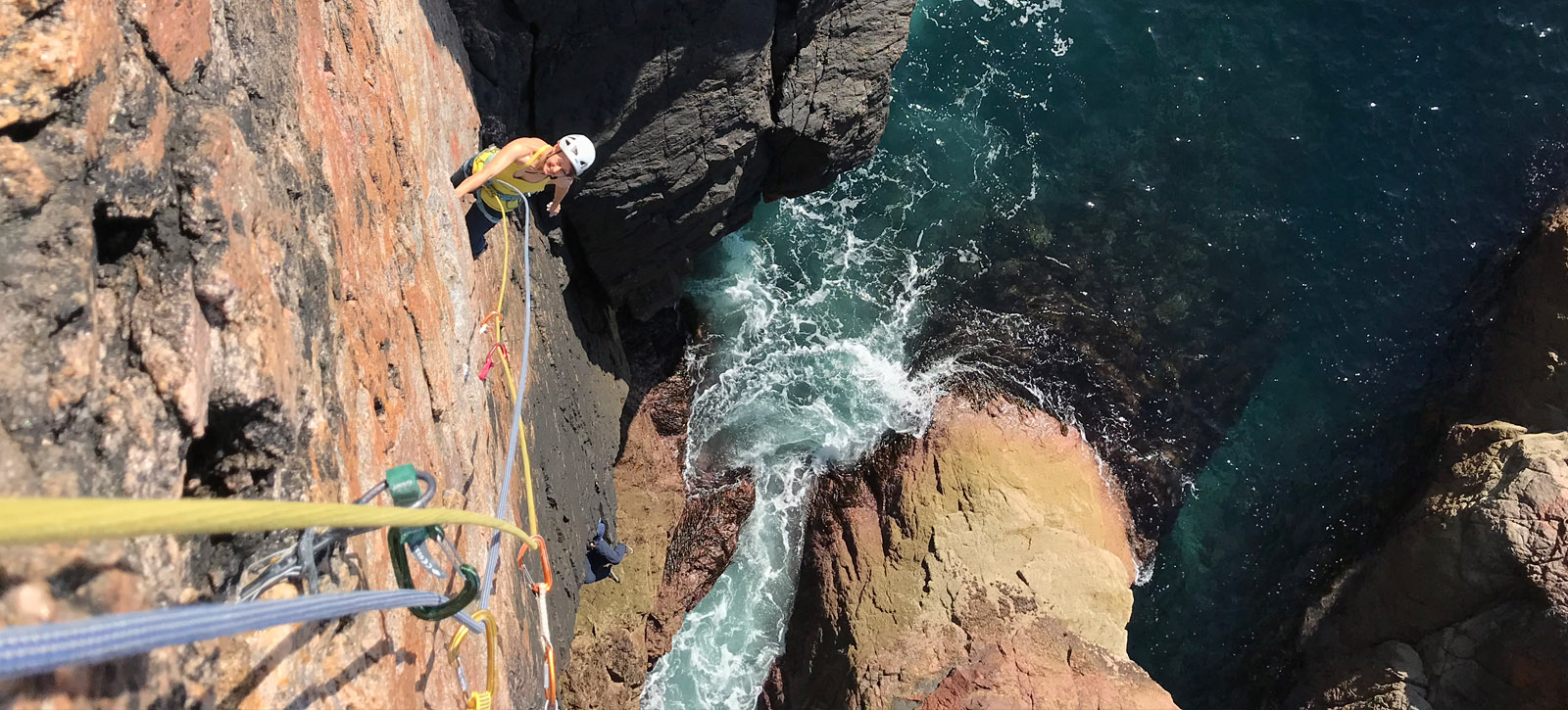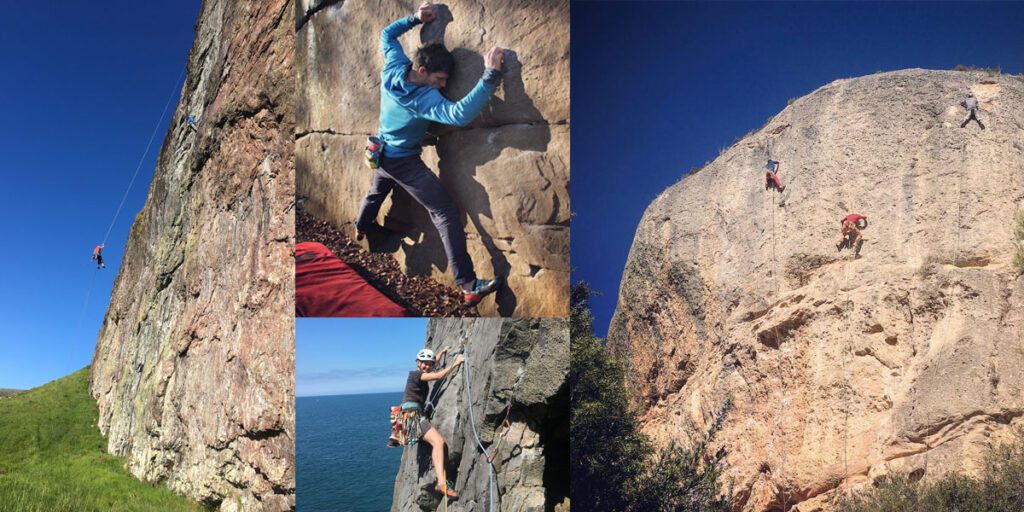27.04.21
Top tips for climbing outside
Climbing in the great outdoors can take you to some amazing places, but it can be daunting taking that first step to climb outside.
If you are new to climbing outdoors or thinking about starting we have gathered some useful tips to help you stay safe and feel confident. You will also find a recommended kit list for different types of climbing, coaching options and a video of our online talk about starting to climb outside.
Before you climb outside
General etiquette and prep
- Buy a guide – read it to learn the local etiquette and get to know the climbs.
- Don’t leave your bags against the rock if it will block routes.
- Check the weather and be aware of the best conditions for your rock type (e.g. never climb on wet sandstone, gritstone is better when it’s really cold).
- Check for access restrictions and seasonal bird bans on the BMC/Mountaineering Scotland websites or UKC.
- Don’t pretend you know how to do technical things.
- Don’t be afraid to ask for help or advice.
- Create a positive mindset and manage anxiety and brush up on belaying skills.
- Buy a first aid kit.
- Consider doing a first aid course. At least once.
- On a hot day, take sun cream and in certain places bring midge repellent and/or a head-net.
- Bring fully charged phones.
- In remote areas, help will not be readily available. Make sure everyone knows exactly where they are, where they can get mobile phone coverage. If you don’t have signal then you must know where the nearest phone box/point of help is.
- You may want shoes with a more comfy fit for trad, as it tends to take a bit longer than sport or bouldering.
- Bring a biodegradable bag and wet wipes for going to the toilet.
- Always bring plenty of water, snacks and layers.
- Don’t pee on or near the crag.
- Turn music off if you are sharing the crag with others.
- Always remove your tick marks when you leave.
Clipping bolts
Sport climbing tips
- Look at the rope when lowering so you know how much is left.
- Always tie a good knot in the end of the rope so it can’t go through your device.
- Book coaching and take notes or videos to help you remember key skills.
- Never top-rope off the in-situ lower-offs. Attach your own kit to avoid unnecessary wear and tear at the crag.
- Create anchors with a quickdraw and a carabiner as this will make it harder for the climber to accidentally remove all the draws (this does happen!).
- Be aware that routes may veer away from the bolts.
- Be aware that some crags can only be accessed by abseil.
- Always check the safest descent route and bring shoes up if it’s a big walk-off.
Know your gear
Equipment and guides
- Speak to staff in the TCA shop or coaches if you need kit advice or check out our online shop.
- Buy a rope that’s long enough for the routes you want to try.
- Take enough draws. There are no rules on how many you need, just don’t skimp.
- Buy a clip stick (to let you clip at least the first bolt when sport climbing)
- Rockfax guides have comprehensive keys to help you understand the crag and the routes. Local guides may channel money back to the people who bolt.
- If you are a new climber and more likely to back-clip. Be aware that stiff quickdraws may be more likely to create the circumstances for the rope to unclip. Draws that rotate more than 90 degrees will help prevent this.
What do I need to start climbing outside?
Bouldering
KIT – boulder pad(s), shoes, chalk.
COACHING – Coaching is available if you need it (such as Movement and Technique, ask in centres), but may not be necessary if you are confident.
Sport climbing
KIT – A rope, appropriate belay devices, quickdraws, additional carabiners, a small sling, shoes, chalk + helmet (recommended).
COACHING – We recommend that you seek coaching before heading outdoors to learn how to thread anchors, clean a route, set up a top-rope and abseil.
Trad climbing
KIT – 2 half ropes, appropriate belay devices, nuts/cams, quickdraws, carabiners, slings, shoes, chalk + helmet (essential).
COACHING – Always seek instruction/coaching before attempting this style of climbing.
We don't stock all of these items in the TCA shop, but have loads of shoes, chalk, chalk bags, knee pads, finger tape. In some centres we have selected boulder pads and local climbing guides. Ask staff.
Watch our free online talk
Let’s go outside with Trev Massiah
Many of the tips above came from our conversation with experienced guide and coach Trev Massiah from Rock and Sun holidays. If you have an hour to spare check out our wide-ranging chat about getting ready to climb outside.
Ready for the next step?
Book coaching
Reading tips online or watching videos never replaces formal training. You must always seek the expert training you need to take part in your chosen activity. You can book bespoke personal coaching sessions to suit your own needs in TCA. Our experienced instructors can help you find the right course. Click the link or email our coaches for more info: email Bristol or email Glasgow.
You may also want to book time with a climbing guide at a crag. For international trips, try Rock and Sun or ask in centres for local certified guides.
If you live in South West England you may be interested in our latest outdoor taster sessions, led by experienced TCA instructors.




